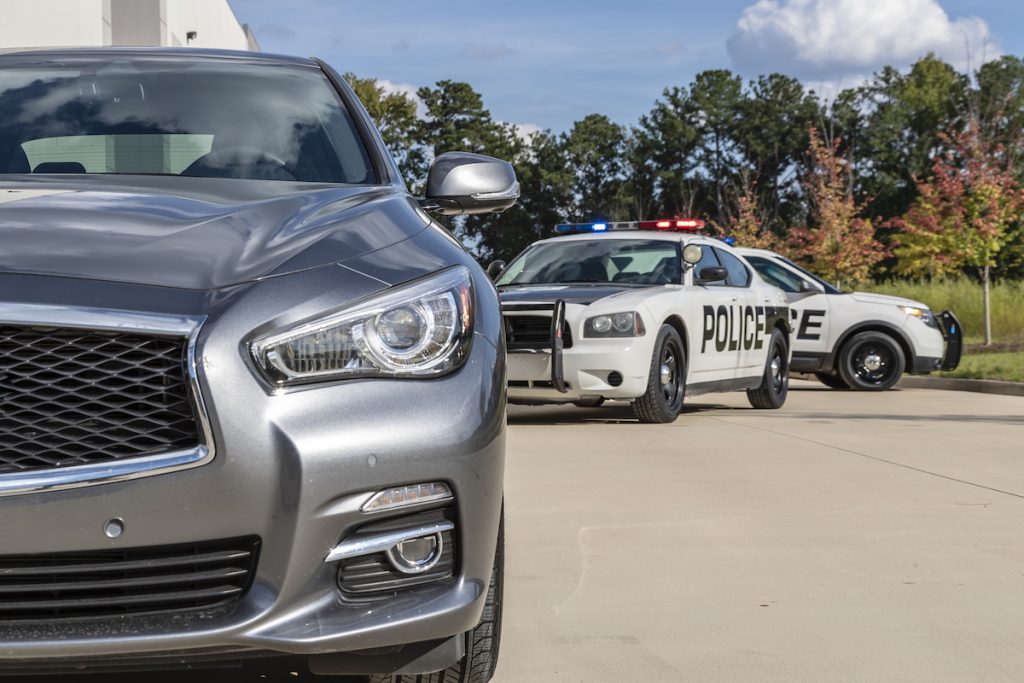When authorities in Utah charge you with driving under the influence, you may feel anxious about the penalties and possible jail or prison time you may face if your charge leads to a conviction. You may have additional concerns if the charge you face is for felony DUI rather than a misdemeanor offense because the consequences associated with a felony offense are typically much more severe than those associated with misdemeanors.
Utah has some of the strictest DUI laws in the nation and is the first state to consider you under the influence if you have a blood-alcohol concentration of 0.05% or higher.

The Difference Between Misdemeanor DUI and Felony DUI
There are several circumstances that help determine whether the drunk driving charge you face is for misdemeanor DUI or felony DUI. You may receive a felony charge, rather than a misdemeanor, if:
- You receive a third drunk driving conviction within a 10-year span
- You cause an accident while driving under the influence, and someone suffers bodily injury in the crash
- You are a habitual violator with a prior conviction for DUI or vehicular manslaughter or homicide
Any of these circumstances may give rise to charges of felony drunk driving. While felony DUIs and DWIs carry significant criminal penalties compared to misdemeanors, they also lead to collateral consequences. Collateral consequences are not criminal penalties but rather restrictions you may face as a result of having a DUI felony or other felony in your history.
Criminal Consequences for Felony DUI
The criminal penalties associated with felony DUI are more daunting than those associated with a misdemeanor drunk driving offense, particularly if you face an aggravated DUI or a second, third, or fourth DUI. Penalties may also increase if you also face charges of reckless driving or vehicular assault. Time behind bars is also mandatory after a felony drunk driving conviction. If convicted of felony DUI in Utah, you face:
- At least 62.5 days in jail and a possible 5-year prison sentence
- Fines totaling close to $3,000
- Ignition Interlock Device requirements
- A possible two-year driver’s license suspension or revocation
- Substance abuse treatment requirements
- Supervised probation requirements
Depending on the details surrounding your drunk driving charge, you may be able to undergo electronic home confinement for some of your sentences. While the criminal penalties associated with a felony DUI charge are considerable, so, too, are the collateral consequences you face following a felony.
Collateral Consequences for Felony DUI
Collateral consequences are penalties you face in the wake of a DUI or DWI that come from somewhere other than the criminal justice system. Having a felony may prevent you from owning or possessing a firearm. It may also create limitations for you as far as finding employment or housing. Furthermore, felony convictions can hinder your ability to utilize public assistance or secure financial aid, among other restrictions.
What to Do After a DUI Charge
A DUI charge, and, in particular, a felony DUI, may have you questioning whether you may have to go to state prison and how it might impact your ability to earn a living. Try not to panic, though. Remember, there is a difference between a DUI arrest and a DUI conviction, and there are many factors that determine whether you ultimately receive a conviction.
If a Utah law enforcement officer charges you with DUI, remain calm and respectful. Once authorities place you under arrest, you will have a chance to contact an attorney. You may discuss your DUI case with your attorney and determine what course of action may benefit you most moving forward. You may also need to figure out what happens to your driver’s license in the wake of your arrest. Once released, contact the towing company that impounded your vehicle promptly to reduce the size of your bill.
Also, jot down as many details about your arrest and the circumstances surrounding it as possible. Avoid sharing any information about your situation on social media.
What a DUI Attorney Does
Once you contact a DWI or DUI defense attorney, he or she may ask you about the details surrounding your traffic stop and subsequent arrest and whether you have any prior DUI convictions. The DUI attorney may ask questions to help determine whether the officer who stopped your motor vehicle had reasonable cause to do so.
The DUI lawyer may review DUI vs. impaired driving charges and inquire further to see if authorities followed all protocols with regard to taking and transporting breath or blood samples and calibrating breath test devices. Any failure to follow protocols may result in a reduced charge or dismissal of your DUI case.
You may feel as if your life is over after a charge for misdemeanor DUI or felony DUI, but keep in mind that the burden of proof falls on the prosecution. Not every felony DUI arrest leads to a conviction, a loss of your driver’s license, jail or prison time, or other penalties. Depending on circumstances, you may be able to minimize the impact your felony DUI has on your life.

